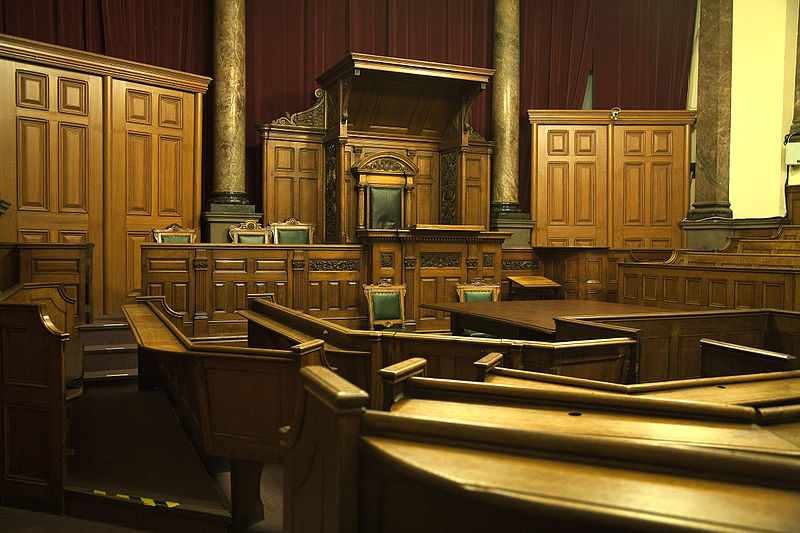The North Carolina Business Court’s new Rules went into effect January 1, 2017 and apply to every civil action that is designated as a mandatory complex business case or assigned to a Business Court judge, regardless of whether it was filed prior to the Rules effective date. They are meant to supplement, rather than supplant, the Rules of Civil Procedure and General Rules of Practice, but if there is a conflict with local rules or standing orders from the county of venue, the Business Court’s Rules will govern.
The purpose of the Rules is actually summarized in the Rules themselves: “[t]hese Rules should be construed and enforced to foster professionalism and civility; to permit the orderly, just, and prompt consideration and determination of all matters; and to promote the efficient administration of justice.” These Rules demonstrate the drafters’ commitment to ensuring the NC Business Court is accessible, flexible, practical, and efficient. Five appendices containing templates are included at the end of the Rules to aid attorneys with cases in Business Court.
Notice of Designation
Rule 2.5 clarifies the designation procedures in cases where the filing party is unable to obtain the defendant’s consent to the designation at the time of filing the complaint and designation notice. In this instance, the plaintiff is to submit a “conditional” notice of designation giving the filing party a grace period to obtain consent from the defendant(s) to complete the notice of designation.
When opposing notices of designation, Rule 2.2 provides a briefing schedule. It clarifies that reply briefs are not allowed absent a court order. To aid a party who opposes the notice of designation, the Rules also provide an extension of time for any deadlines running in a case.
Rule 2.3 describes the circumstances in which amended pleadings can give rise to a mandatory complex business case designation. In short, if the case previously qualified for designation, the party requesting designation cannot file an amended pleading as the basis for requesting the designation. The amended pleading must allege new facts that make a business case designation appropriate.
Filing
According to Rule 3.1, electronic filing is now mandatory. The Rules provide two exceptions. First, a pro se party may request to forgo use of the electronic filing system and the Court will determine using a good-cause standard. Second, parties can file a motion for relief from using the system, but the Court will only grant that relief upon a showing of exceptional circumstances. Rule 3.5 prescribes the format for electronically filed documents, but anticipates evolving technology may expand or contract the range of acceptable file formats. To accommodate technological advances, the Business Court’s website will maintain a list of acceptable file format which can be found here along with tips for electronic filing. A tutorial on e-filing can be found here.
Rule 3.7 states that when a document is filed, the Court’s electronic filing system generates a Notice of Filing, which is sent to all counsel of record. An electronic filing is not deemed complete until this electronic notice of filing is issued. The filing is deemed complete on the date stated in the Notice of Filing.
Rule 3.11 states the only filings that must be filed with the county of venue’s clerk of court in addition to the Business Court are those listed in NC Civil Procedure Rule 5(d).
Electronic Filing Issues
The court also recognizes technological problems can, and will, arise and provides a procedure for when they occur. Rule 3.10 requires party to make a second attempt at filing if the first attempt fails. If the second attempt also fails, the party should either continue to attempt filing or may (1) call the judicial assistance of the presiding Business Court judge to notify him or her, and (2) email the document to filinghelp@businesscourt.net with filing instructions. All counsel should be copied to this email. The email serves to provide proof of an attempt and will protect them in the event of an imminent deadline.
When calculating deadlines for a troublesome electronic filing, the document is deemed filed at the time and date stated in the notice of filing. If the document was emailed to the filing help email address, there will be an associated notice of filing that is issued and the briefing or response period does not begin to run until that time and date.
Motions Practice
Much of the guidance on motions practice remains the same, but a few added provisions make the process more efficient. In the past, Business Court judges often required opposing counsel to consult with one another prior to filing motions. Rule 7.3 now requires it in all circumstances, with the exception of dispositive motions and motions for injunctive relief.
Rule 7.5 does not modify the briefing requirements much, except to require the indexing, organizing, and numbering of the supporting materials accompanying a brief and motion. When a supporting document is available publicly on the Internet, parties are encouraged to cite to via hyperlink instead of attaching the document. However, in order to ensure that the material is accessible in the future, attorneys are still required to preserve or archive the hyperlink or URL address.
Rule 7.10 added types of motions that do not require briefs. For example, consent motions and other perfunctory motions are not required to be accompanied by a brief.
The revised Rule 7.12 clarifies all motions will be decided without live testimony or argument, unless the Court otherwise orders. If a party wishes to file a motion to present live testimony, that motion must be limited to 500 words or less.
Emergency Motions
Rule 7.13 addresses how emergency motions are handled. Before the Rules were updated, judges applied a case-by-case basis approach to deciding whether a Business Court judge or the judge in the county of venue would hear the motion. The new Rule now clarifies the Business Court judge will hear all emergency motions after a case has been designated to Business Court, even if the motion was filed before designation. If the motion was heard by the judge in the county of venue before the designation, the Business Court judge will defer to the non-business court judge. Finally, the Rule provides an expedited briefing schedule for emergency motions.
If you are unsure of whether your case will be designated a complex business case or have questions about the new Rules, it is wise to consult an attorney who can guide you through the process. Please call, e-mail, or visit us as www.lindleylawoffice.com.
Coming soon: Part 2 which will discuss the new case management requirements, including discovery motions and processes, protective orders, and pretrial preparation process.





